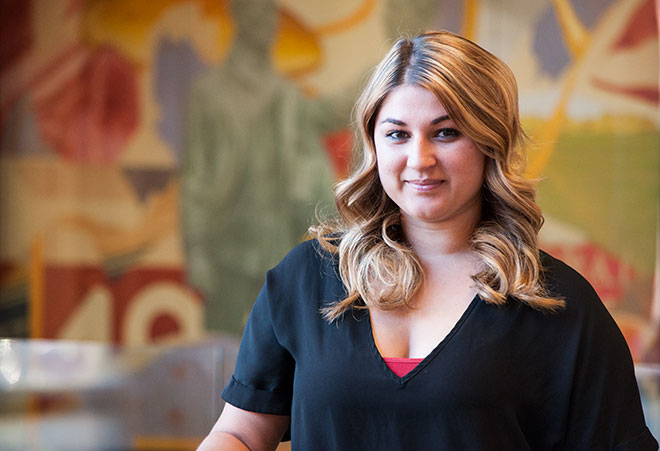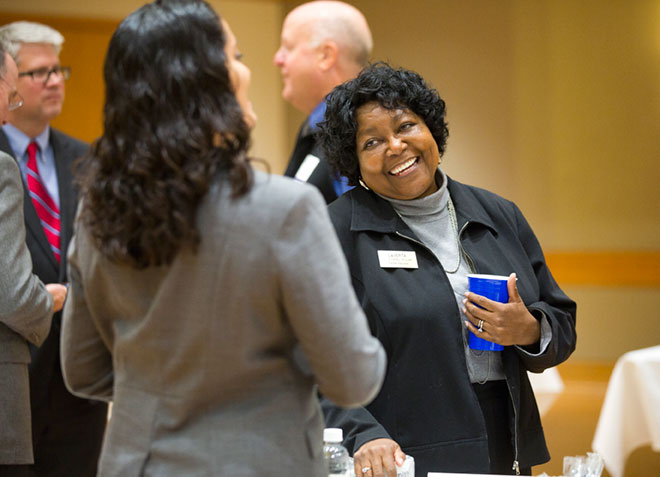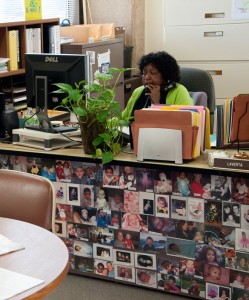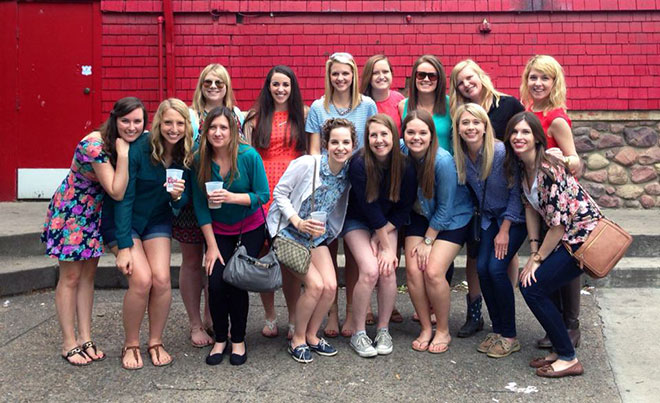
Before applying to law school, most people focus on when to take the LSAT, which law schools to visit, and what would be a good topic for their personal statement. No reasonable and prudent person would possibly consider the fact that his or her whole life is about to change. Right?
As it turns out, legal training basically reboots your brain. After your first month as a law student, you begin referencing law in almost every aspect of your life.
To illustrate this phenomenon, I offer 14 typical thoughts after your first month as a law student:
#1 Is there free food?
Everyone makes the New Year’s resolution to hit the gym every day and eat healthy, but after a month in law school, you realize you are wherever the free food is. When a classmate asks if you are going to the Student Bar Association (SBA) info session or the Women in Law meeting, your VERY first response will be, “Is there going to be food?” Pizza is usually the top choice for meetings, but occasionally an organization will attempt to lure you with Hot Box cookies or Buffalo Wild Wings.
#2 Are you going to this event or that one?
Eventually, you will have the dilemma of choosing which Facebook invitation is more important. Two events could be scheduled at the same time, and you wonder whether you want to listen to a debate or listen to Dean’s Fellows scare you about outlining and finals in early October. After you get an answer to your initial “Is there free food” question, you turn to question two: “Are you going to this event or that one?” Sometimes you need the wisdom of your classmates to help you decide which event is important.
#3 That’s a promise.
When you take Contracts, you will learn what can be considered a promise and how that promise can be used against you in a court of law. After that beautiful day, you will hear promises and considerations almost every time you talk to a non-law student, and you will witness law students avoid making promises for absolutely everything. You will mentally attach every person who makes you a promise to a binding contract.
#4 That’s a tort.
More than any class you take, Torts will ruin the way you see everyday life. Banana peel on the floor? Yep, that’s a tort. Friend playfully hits you? You yell, “Battery! That’s a tort.” Every hazard in the road will be a tort. You will find at least one thing each day that could be used in a lawsuit against a tortfeasor.
#5 What is the “k” homework?
Back to Contracts. Eventually you will start to refer to contracts as “k.” Your notes will say, “The k was voidable” or “Was there a k formed?” Why it is not “c” no one really knows. Get familiar with the concept of uncertainty.
#6 WWRPPD?
Now back to Torts. Why? Because this is law school and WWRPPD, “What would a reasonable and prudent person do?” is a question you will commonly ask after taking Torts. Eventually, you will answer every question in every class, “Depends. What would a reasonable and prudent person do?”
#7 This is not like “Legally Blonde.”
After becoming a real law student, the only part I can truly relate to in “Legally Blonde” is using legal vocabulary in everyday life. You object? Well attend law school and judge for yourself.
#8 Blackacre? Black acre?
Property. What is blackacre? Who is blackacre? Hmmm. What would a reasonable and prudent person do when encountered with blackacre?
#9 Sorry, it’s confidential.
If you gossip, that’s great. Law school is a perfect place for the middle school “Are they dating?” “I wonder if that cute guy likes me?” or “Should I send her a friend request?” drama. But when it comes to Lawyering Skills and the amazing memos you will be producing, you must learn to keep things to yourself. You can talk to your professor, the teaching assistant, and/or the librarian, but do not talk to your roommate, spouse, pet, neighbor, hair stylist, etc. You are going to be a lawyer now, so do what Tom Riddle does and have a chamber of secrets.
#10 That reading was too short.
You will come across a few classes where the reading assignment is less than 10 pages, and you will think to yourself, “What kind of trick is my professor trying to play on me?” You will discuss with your classmates and ask them if they are seeing the same page count because you feel 99.9 percent sure you are delirious and there is no way you only have to read four pages for Contracts.
#11 No one understands.
No one outside of law school will understand what you are going through. You will try to explain it, but it will be the equivalent of speaking to a brick wall. But you always have fellow law students to help you through any obstacle you face – except when it comes to the open memo.
#12 What is an outline?
The word “outline” will be used a lot during the first month of school. Don’t know what an outline is? That’s OK. Neither did most students coming into law school. I didn’t fully comprehend what an outline was until I sat with my study group and started working on one. Law school is all about the uncertainty.
#13 I am a law student.
You will try and succeed at letting people know you are a law student. It’s a big accomplishment, and everyone you speak with deserves to know you are in law school. I personally like to let people know I am in law school because this has been my dream, and I am proud of my accomplishment.
#14 My classmates are like family.
Coming from Arizona, I was worried that I would feel homesick and scared. I thought I would want to give up after a few days and go running home. But my classmates are my family. I never thought I would come into a competitive environment and feel so comfortable. I would not exchange this experience for anything.
— Rayven Ouellette-Garcia is a first-year law student and KU Law Student Ambassador from Arizona.

















